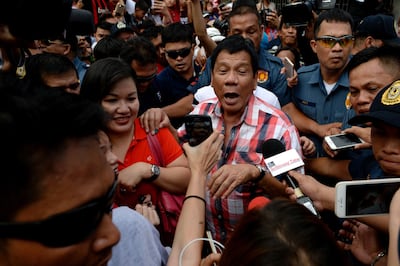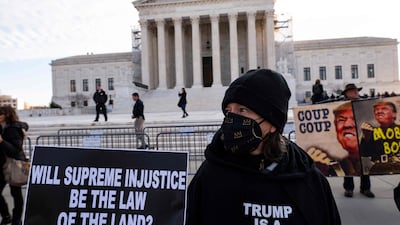Why are liberals such bad losers? That was my thought after seeing much of the coverage of the election of Prabowo Subianto as President of Indonesia last week.
At the end of January, I had warned that should Mr Prabowo, currently the country’s defence minister, win, “he will not be guaranteed a friendly reception in some quarters”. And sure enough, these were some of the headlines in western-dominated international media: “Prabowo wins. Does Indonesian democracy lose?”, “Prabowo’s win is dismal news for democracy”, “Democracy, interrupted in Indonesia”, and “In Indonesia elections, fears grow that democracy is sliding”.
One might think that a rather ungracious way to respond to the result of the world’s largest single-day election, as well as being hugely condescending to the estimated 57-60 per cent of Indonesian voters who cast their ballots for him. As for fears of democratic backsliding: well, Mr Prabowo may be a former general and has at times cultivated something of a “strongman” image, but he has stood for the vice presidency once and the presidency three times – he has shown himself more than willing to accept the will of the people. Isn’t it a bit strange that the very moment he wins power through a commanding democratic mandate, the first reaction of some is to warn of the danger to democracy?
Indonesians wanted Mr Prabowo to be president, they voted for him, and he won: isn’t that democracy in perfect working action? The real danger to democracy would surely be if he won a majority of votes, and then didn’t become president, although it seems some of his critics would have preferred that outcome.
But we’re already seeing the same in advance of the American presidential election due to be held in November.

Dire warnings have been issued about what a second Donald Trump presidency might entail, not least the complete politicisation of the country’s institutions; although when there are already elections for school boards, sheriffs and district attorneys in many US states, as well as the confirmation of Supreme Court justices having become highly partisan, it’s hard to argue that has not already happened to a great degree. But the question has been asked frequently: can US democracy survive four more years of the Donald? Canadians are apparently particularly concerned; two thirds of them said the answer was “no” in a poll this January.
I take a rather different view. The American people have had no shortage of information about Mr Trump. They remember his presidency very well. If they vote him to power (assuming he is the Republican candidate) knowing full well what a second term is likely to entail, that is their democratic right; and something will have gone very wrong if that is not reflected in the result.
There’s a pattern here, a by-now entirely predictable one. Whenever liberals – I use the term in the very broadest sense – see an election result they don’t like, they say that democracy is in trouble. Perhaps they might do better to reflect a little. After all, if their values are so manifestly superior, they ought to be winning “big league”, as Mr Trump would put it (some initially misheard it as “bigly”), all the time. But the rise of populism on both the left and the right has been one of the most noticeable trends in politics around the globe over the past two decades.
Do liberals think that people who vote for these parties, or causes that are considered populist, are stupid, or easily misled? Some definitely believe that. An article on the news aggregator CapX last November just put it more bluntly than most, when it asked: “Are Brexit voters thick?”

Such supercilious attitudes are often hidden – they’re not polite – but people do know when they’re being patronised. In 2016, shortly before the brash and populist Rodrigo Duterte was elected president of the Philippines – a prospect that was greeted with horror internationally – I wrote a column in these pages saying that liberal democracy might be having a difficult time in the country, but democracy was doing just fine.
A few days later, a Philippine ambassador came up to me at a conference in Kuala Lumpur. “Thank you for writing that,” she said. I was a little surprised; she was then running a human rights NGO and would have been an unlikely Duterte supporter. But I think that she didn’t like her country being attacked, and she accepted that while the former Davao City mayor may have had a record of making outrageous comments, his support was genuine and widespread. If he won, as he did, it would be a democratic result.
I also believe that the ambassador would have been aware, as too many liberals are not, that they are often seen as catering to the anxieties of higher-income elites and that they have forgotten the centrality of class in forging a politics that lifts all.
I do understand the concerns of liberals. I used to be one, with both a big and a small “l”, when I lived in the UK. But I don’t believe in imposing my beliefs on others, and I respect the legitimacy of other political creeds. That cannot be said of the swathes of liberal opinion who are dismayed by Mr Prabowo’s election and will be sent totally doolally if Mr Trump returns to the White House. So vehement is their opposition to the election of figures such as these, and so strong is their insistence that such results cannot be right, that one has to ask: do they really believe in democracy at all?
In fact, if they won’t accept the verdicts of the people, aren’t they, and not the likes of Mr Prabowo and Mr Trump, the real threat to democracy?


